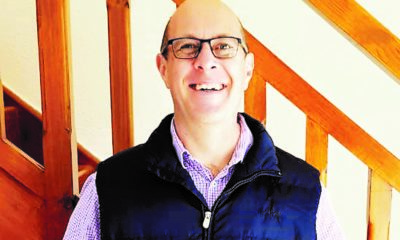
News
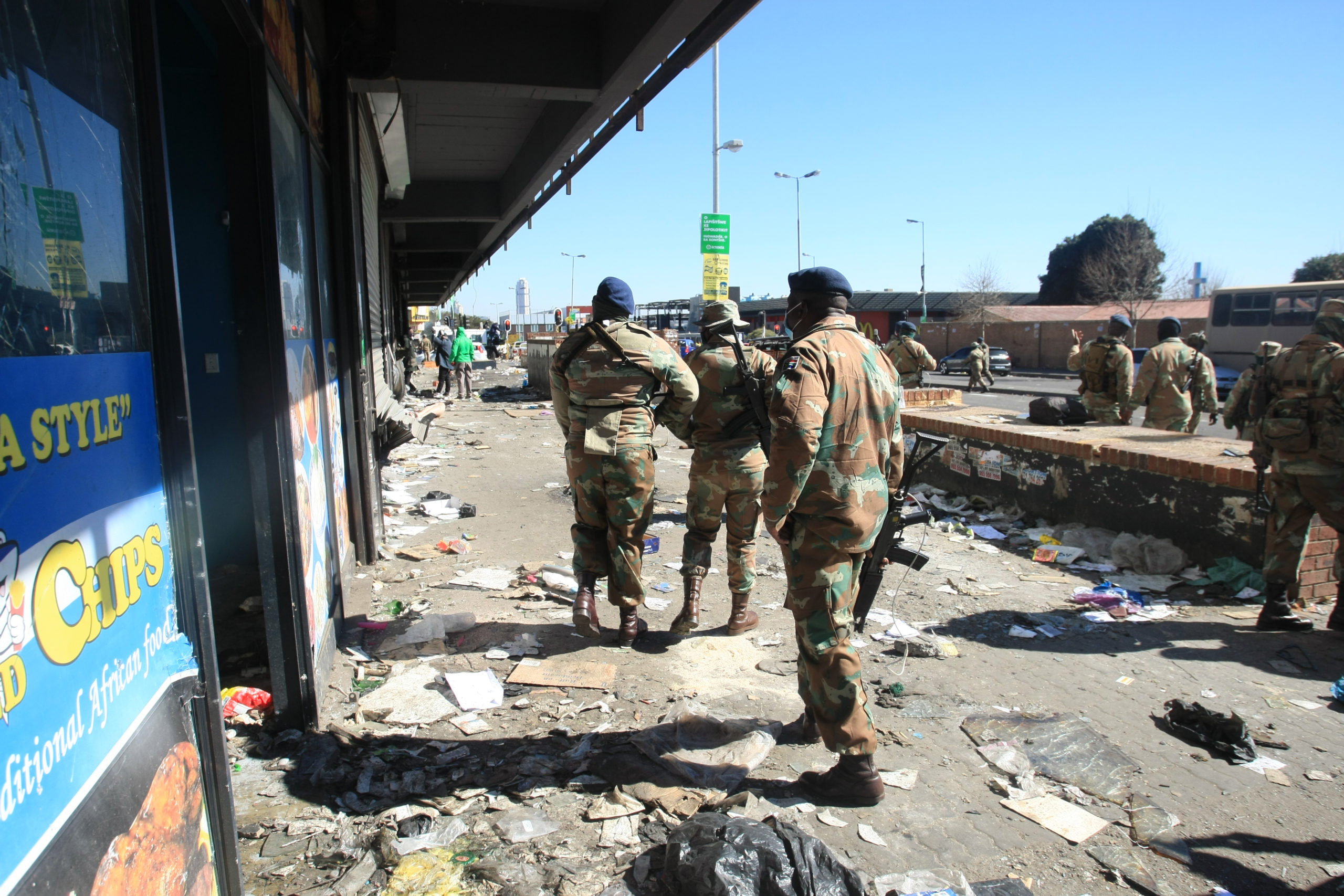
“Kwazilience” and community – the watchwords a year from the riots
“I’ll never forget the toxic fumes from the UPL [United Phosphorous Limited] factory fire engulfing our home; staying awake listening to gunfire and chanting; our emergency bags packed by the door; and the SAPS [South African Police Service] begging our neighbourhood patrol for firearms and bullets as they were woefully under-equipped.”
These are the words of community leader and Durban resident Alana Baranov, who is just one of thousands still haunted by their experience of the unrest, violence and anarchy in July last year in KwaZulu-Natal and parts of Gauteng.
Now, she says, “the first anniversary of the unrest is a time for reflection. Most of the perpetrators of the violence and the instigators of the insurrection, which was carefully planned and orchestrated, have yet to be brought to justice.
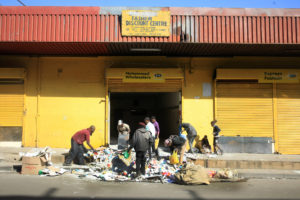
“The scars of reignited racial tension in places like Phoenix remain unhealed, and many communities are still divided and suspicious of each other.
“The threat of more unrest is constantly bubbling under the surface because of unresolved anger from July 2021 and other frustrations,” she says. “The silver lining is the memory of how most communities rallied together in a time of crisis. Neighbours shared food, fuel and medicine, and people took to the streets to protect not just their own families but their neighbours’ homes, shops, and businesses.”
“We felt what it was like to be closed off, to live in real fear, without access to petrol, food and basic supplies,” says Rabbi Gilad Friedman of the Umhlanga Jewish Centre.
“The destruction that was caused is still very much a part of daily life,” Friedman says. “It’s been a triple threat: the riots, the flooding and the pandemic. The Durban Jewish community is incredibly resilient.” He says the connections forged between people of all backgrounds, and the strengthening of the Jewish community’s cohesiveness, are two silver linings.
Michael Ditz lost 16 clothing stores in the chaos. Twelve months later, he says, he feels “nervous, not relaxed – like being on a knife’s edge, and like it could happen again. It made me question my family’s future.” He would like to see “some arrests and government holding the police and army to account. The fact that there’s been neither is a disgrace.”
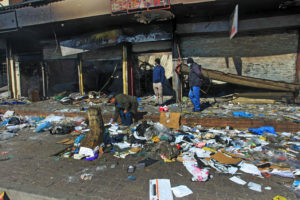
During the riots, property developer Steven Herring watched a small miracle as local residents stood up to looters who threatened his mall. Now, he says, “The riots are fresh in our minds. Property owners had to rely on their own security and goodwill from local communities to protect malls. If anything, mall owners are beefing up security and playing a bigger role in social responsibility to ensure that we all stay safe if this situation repeats itself.
“It’s clear that township assets are part and parcel of the makeup of each local community,” he says. “You need to work with the local taxi associations, hawkers, local schools, etc to get buy-in to support each mall, not only buying at the stores but also protecting what’s essentially their one-stop shop on their doorstep. It’s a team effort all the way.”
“The July 2021 unrest was undoubtedly one of the most destructive and traumatic episodes in our country’s post-liberation history,” says South African Jewish Board of Deputies (SAJBD) National Director Wendy Kahn. “The SAJBD and The Angel Network [TAN] participated in clean ups in Daveyton and in arranging food relief in Daveyton, Soweto and in KwaZulu-Natal. We saw the devastation first-hand. It simply cannot happen again. Ensuring this will require a combined effort from all South Africans.”
“Poverty has been on the rise since the July looting,” says Tanya Altshuler of TAN Durban. “A soup kitchen, which we support in the community of the suburb of Avoca, used to feed 39 adults. That number has almost doubled in the past year. Many individuals, who operated informal trading stores outside malls and relied on shopping centre trade are starving since those centres were burnt down and still aren’t yet operating or are only partially operating. There are also more homeless people in the shelters.
“So many businesses have closed their doors or had to retrench employees to survive. Refugees have experienced high levels of poverty and insecurity. Before the looting, the majority owned small businesses of which a large number were looted and they didn’t receive any compensation from any governmental relief fund. TAN Durban assists the refugee community with food parcels on a monthly basis to supplement its loss of income.”
“It’s hard to believe that one year ago, KwaZulu-Natal was under civilian attack,” says Susan Abro, the president of the SAJBD KZN Council. “’Kwazilience’ applies to those living in KZN. It’s a coping skill we’ve developed due to lockdown, rioting, looting and flooding.”
What she has also realised is that “we need to be prepared for every eventuality, and therefore, we have ensured that all of our installations are in a position to provide adequate food to the community for a period of at least two weeks. This can happen anywhere and anytime, and plans should be put in place so that one isn’t caught off guard,” says Abro.
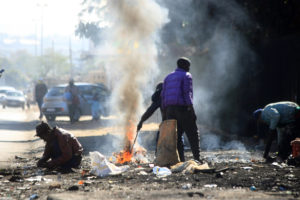
In that context, the Community Security Organisation’s Jevon Greenblatt says, “There has been much speculation about where our country is heading. The current environment appears to be volatile, with competing factions seeking to impose their own agendas.
“Many South Africans are frustrated and desperate, which creates the potential for individuals and groups with their own agendas, whether criminal, political or ideological, to capitalise by hijacking legitimate concerns and sentiment,” he says. “Escalating civil unrest and even insurrection are possibilities that we need to consider – with the events of July 2021 being a key lesson.”
To the community, he says, “It’s important to be informed. Read credible news sources and keep up to date with the latest developments. Don’t create panic by forwarding unverified information. Join your area Community Policing Forum, support your local police station, and where possible, get involved in your area’s Community In Blue initiative.”
In addition, “Set-up or join a neighbourhood or street watch group. This creates a structured system in which neighbours can come to each others’ assistance if necessary. Note that this must be done prudently and within the ambit of the law. Security is a collective effort, so we urge everyone to act responsibly, remain vigilant, and report any concerns or incidents.”
If you do arrive at an area or location which seems problematic, “don’t take chances, leave immediately. If you end up being caught in a protest, remain calm, don’t draw attention to yourself, and always work towards de-escalating the situation and getting away as quickly as possible. If you cannot get away, find a safe place to shelter.”
Ensure your home security systems are in good working order and regularly tested. Inform the CSO of any concerning or suspicious behaviour or activity on 086 1800018. “Although there’s no reason for panic, it’s better to have a plan in place should the need arise rather than needing to act but not considering what will be required under difficult circumstances,” Greenblatt says.





